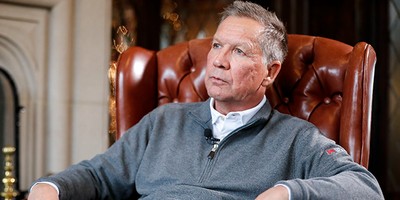Barack Obama last month enlisted Theodore Roosevelt in his campaign for increased governmental control of health care, arguing that TR "first called for reform nearly a century ago." Google "Theodore Roosevelt, universal health care," and you'll find The Washington Post, The Huffington Post, DailyKos, and many other stalwarts of the left suggesting or claiming that Obama is carrying the Republican Roosevelt's banner.

That's nonsense. The propagandists take as their one piece of evidence a plank in the Progressive Party platform of 1912: "The protection of home life against the hazards of sickness, irregular employment and old age through the adoption of a system of social insurance adapted to American use."
The tip-off as to intention lies in those last four words, "adapted to American use." Germany's "Iron Chancellor," Otto von Bismark, had created in the 1880s insurance provisions for health, accidents, disability, and old age. The health service offered was local, not centralized, with employers contributing one-third of the cost and workers contributing two-thirds. The vague Progressive Party proposal was for something along those lines, and it's hard to know more about Teddy Roosevelt's thinking because this was not one of the issues he emphasized.
If Obama wanted to report accurately Roosevelt's beliefs, he would start with a speech about one of TR's favorite topics, "Deadening socialism."
The 26th president saw governmental control of the economy as the political manifestation of covetousness. He argued that "the only permanently beneficial way in which to help any one is to help him help himself; if either private charity, or governmental action, or any form of social expression destroys the individual's power of self-help, the gravest possible wrong is really done to the individual."
Recommended
TR also contended that socialism could be fought most successfully by applying biblical ideas about helping the poor. The greatest hope lay through "voluntary action by individuals in the form of associations," particularly when the goal was "that most important of all forms of betterment, moral betterment—the moral betterment which usually brings material betterment in its train." Those who truly wanted to help had to stand "against mere sentimentality, against the philanthropy and charity which are not merely insufficient but harmful."
In response to those who thought that would-be helpers, even when naïve, should be cheered, Roosevelt argued, "I really do not know which quality is most productive of evil to mankind in the long run, hardness of heart or softness of head." He stated that the Bible tells each of us "to stretch out his hand to a brother who stumbles. But while every man needs at times to be lifted up when he stumbles, no man can afford to let himself be carried, and it is worth no man's while to try thus to carry someone else."
Governmental aid to those in need, TR emphasized, should be limited and "extended very cautiously, and so far as possible only where it will not crush out healthy individual initiative." He saw entrepreneurship as the most effective means of dealing with problems and argued that "socialists and others really do not correct the evils at all, or else only do so at the expense of producing others in aggravated form."
Roosevelt saw governmental redistribution of wealth as a surrender to covetousness. He argued that anyone elected on such a platform "is not, and never can be, aught but an enemy of the very people he professes to befriend. . . . To break the Tenth Commandment is no more moral now than it has been for the past thirty centuries."
In short, TR opposed both private and governmental corruption. He straightforwardly noted that "the Eighth Commandment reads: 'Thou shalt not steal.' It does not read: 'Thou shalt not steal from the rich man.' It does not read: 'Thou shalt not steal from the poor man.' It reads simply and plainly: 'Thou shalt not steal.'" President Obama should take that advice to heart instead of trying to twist history for his political advantage.

























Join the conversation as a VIP Member